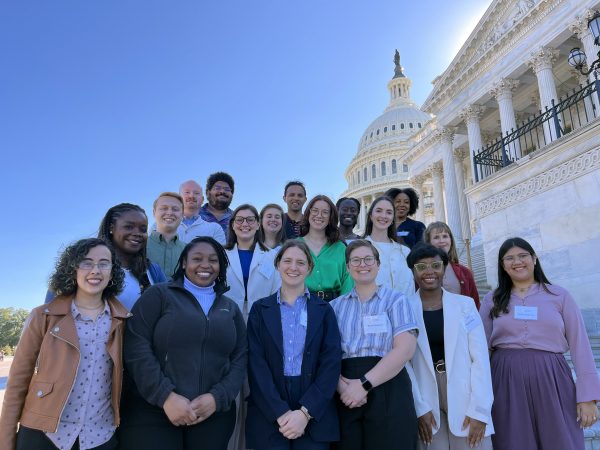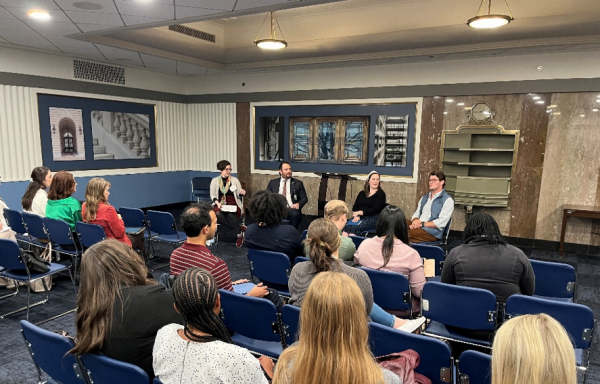STEM professionals play an important role in shaping public policy. Their expertise ensures that decisions on issues related to health care, technology, and federal research funding are guided by scientific knowledge and experience.
To learn about ways to contribute to public policy, 18 Vanderbilt graduate students and postdoctoral researchers traveled to Washington, D.C., in October to participate in Vanderbilt’s Federal STEM Policy and Advocacy Seminar. This two-day event is designed to provide STEM professionals with an inside look at the federal policymaking process, the importance of advocacy in advancing science and research priorities and to explore careers in science policy.

Leveraging expertise for policy impact
The participants, representing a diverse range of STEM disciplines across the university, were eager to learn how to communicate their research to broader audiences and translate their skills into real-world applications. Many wanted to explore how their scientific expertise could shape policy decisions, especially concerning federal funding for research.
“I have been interested in science policy for years but haven’t yet gotten the opportunity to apply this interest to actual practice,” said Katherine Webb, a Ph.D. student in biomedical engineering. “I loved the opportunity to network with Vanderbilt alumni and learn about the day-to-day responsibilities of those in federal relations and science policy positions.”
Insights from industry leaders
The seminar featured five panels with 14 speakers, including four Vanderbilt alumni. Most speakers had backgrounds in science before transitioning to policy roles, offering participants firsthand insights into how they could apply their scientific expertise to the policy arena.
These discussions provided an overview of the history of science policy and the federal research budget, highlighting the critical need for scientists and engineers to engage in advocacy to secure continued support for research and innovation.

Participants heard from federal agency officials and congressional staff involved in crafting health care, science and engineering policy. They learned how clear, effective communication of compelling scientific data can shape policy outcomes. The panels also provided insider information on how to pursue congressional and federal jobs, offering guidance on the types of roles scientists and engineers play on Capitol Hill and in federal agencies.
The seminar included discussions with advocates from professional associations like the Association of American Universities and the American Association for the Advancement of Science. These conversations emphasized the power of coalition building in advocating for federal research funding. The seminar also helped participants see how their scientific expertise can contribute to advancing national research and education priorities, both through direct advocacy and by pursuing policy-focused career paths.
“This program was an invaluable resource to my understanding of science policy and how we as academics can leverage our skills and research toward creating actionable solutions,” said Katrina Rbeiz, a Ph.D. student in psychology. “I thoroughly enjoyed interacting with all of the speakers, panelists and alumni, and found the seminar to be a treasure trove of connections, ideas and insights into the world of advocacy.”
A collaborative learning experience
Hosted by Vanderbilt University’s Office of Federal Relations and the Vanderbilt University Medical Center Office of Federal Relations, the seminar brought together key partners, including the Vanderbilt Graduate School, the BRET Career Development ASPIRE Program, the Office of Postdoctoral Affairs, the Russell G. Hamilton Graduate Leadership Institute and the Vanderbilt University Career Center.
Students interested in future programs and seminars can visit the Office of Federal Relations website for more information on upcoming opportunities.